
AiTimeline
A timeline of notable generative AI events
Stars: 54
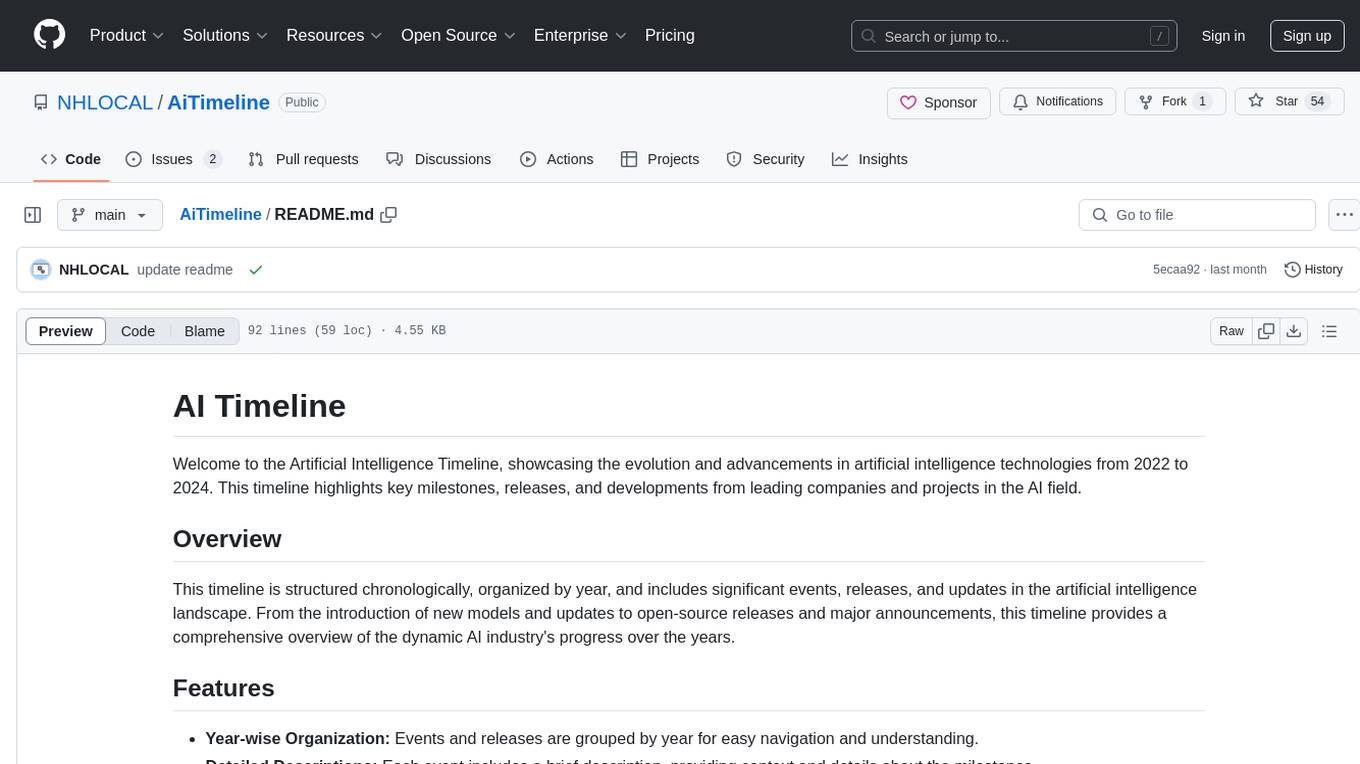
AiTimeline is a comprehensive timeline showcasing the evolution and advancements in artificial intelligence technologies from 2022 to 2024. It provides a detailed overview of key milestones, releases, and developments in the AI industry, organized chronologically by year. The timeline offers a responsive design for seamless viewing on various devices and includes brief descriptions for each event, making it a valuable resource for researchers, enthusiasts, and anyone interested in tracking the progress of AI technologies.
README:
Welcome to the Artificial Intelligence Timeline, showcasing the evolution and advancements in artificial intelligence technologies from 2022 to 2024. This timeline highlights key milestones, releases, and developments from leading companies and projects in the AI field.
This timeline is structured chronologically, organized by year, and includes significant events, releases, and updates in the artificial intelligence landscape. From the introduction of new models and updates to open-source releases and major announcements, this timeline provides a comprehensive overview of the dynamic AI industry's progress over the years.
- Year-wise Organization: Events and releases are grouped by year for easy navigation and understanding.
- Detailed Descriptions: Each event includes a brief description, providing context and details about the milestones.
- Multiple Events Handling: For months with multiple events or updates, events are listed as bullet points under the respective month for clarity.
- Responsive Design: The timeline is designed to be responsive and accessible on various devices, ensuring a seamless viewing experience.
- View the Timeline: Visit the Artificial Intelligence Timeline to explore the events and developments in the AI industry.
- Navigate the Timeline: Scroll through the timeline to view events chronologically, or use the year indicators to jump to specific years.
- Explore Events: Click on individual events to view detailed descriptions and learn more about each milestone.
The website is generated using Jekyll, a static site generator. Content is managed in YAML data files and Markdown, making it easy to update and maintain.
Key Files and Directories:
-
_data/: Contains the YAML files that store the timeline data (timeline.yml) and the external links (links.yml). This is where you'll contribute new events and links! -
_includes/: Contains reusable HTML components, such as the footer (footer.html). -
_layouts/: Contains the main site layout (default.html). -
assets/: Contains your CSS, images, and the favicon. -
index.md: The main content file for the homepage.
We welcome contributions to keep the timeline comprehensive and current. Here's how you can contribute:
-
Fork the Repository: Fork this repository to your GitHub account.
-
Add or Update Events:
-
Open the
_data/timeline.ymlfile. -
Add new events following this structure. Use month names for the date:
- year: 2024 # The year of the event events: - date: July # Date format: Month info: - text: "**New Amazing AI Model Released!**" # Event description (use **bold** for emphasis). - text: "More details about the release." special: true # Add `special: true` to highlight events
-
You can also add new links in
_data/links.ymlusing a similar structure.
-
-
Commit and Push: Commit your changes and push them to your forked repository.
-
Create a Pull Request: Create a pull request from your forked repository to the main repository.
-
Review and Merge: Your pull request will be reviewed, and after approval, will be merged into the main timeline.
If you'd like to preview changes before submitting a pull request, you can run the site locally:
-
Install Ruby: Jekyll requires Ruby. Install it from rubyinstaller.org or use your system's package manager.
-
Install Jekyll:
gem install jekyll bundler
-
Navigate to Project Directory: In your terminal, navigate to the project's root directory.
-
Build and Serve:
bundle exec jekyll serve -
View Locally: Open your web browser and go to
http://localhost:4000.
This timeline was created as a project to document and showcase the advancements in artificial intelligence technologies. It serves as a resource for researchers, enthusiasts, and anyone interested in tracking the progress and evolution of AI technologies over the years.
This project is licensed under the MIT License. See the LICENSE file for details.
Thank you for visiting the Artificial Intelligence Timeline! We hope you find this resource informative and useful. For any questions or inquiries, please contact us.
For Tasks:
Click tags to check more tools for each tasksFor Jobs:
Alternative AI tools for AiTimeline
Similar Open Source Tools

AiTimeline
AiTimeline is a comprehensive timeline showcasing the evolution and advancements in artificial intelligence technologies from 2022 to 2024. It provides a detailed overview of key milestones, releases, and developments in the AI industry, organized chronologically by year. The timeline offers a responsive design for seamless viewing on various devices and includes brief descriptions for each event, making it a valuable resource for researchers, enthusiasts, and anyone interested in tracking the progress of AI technologies.
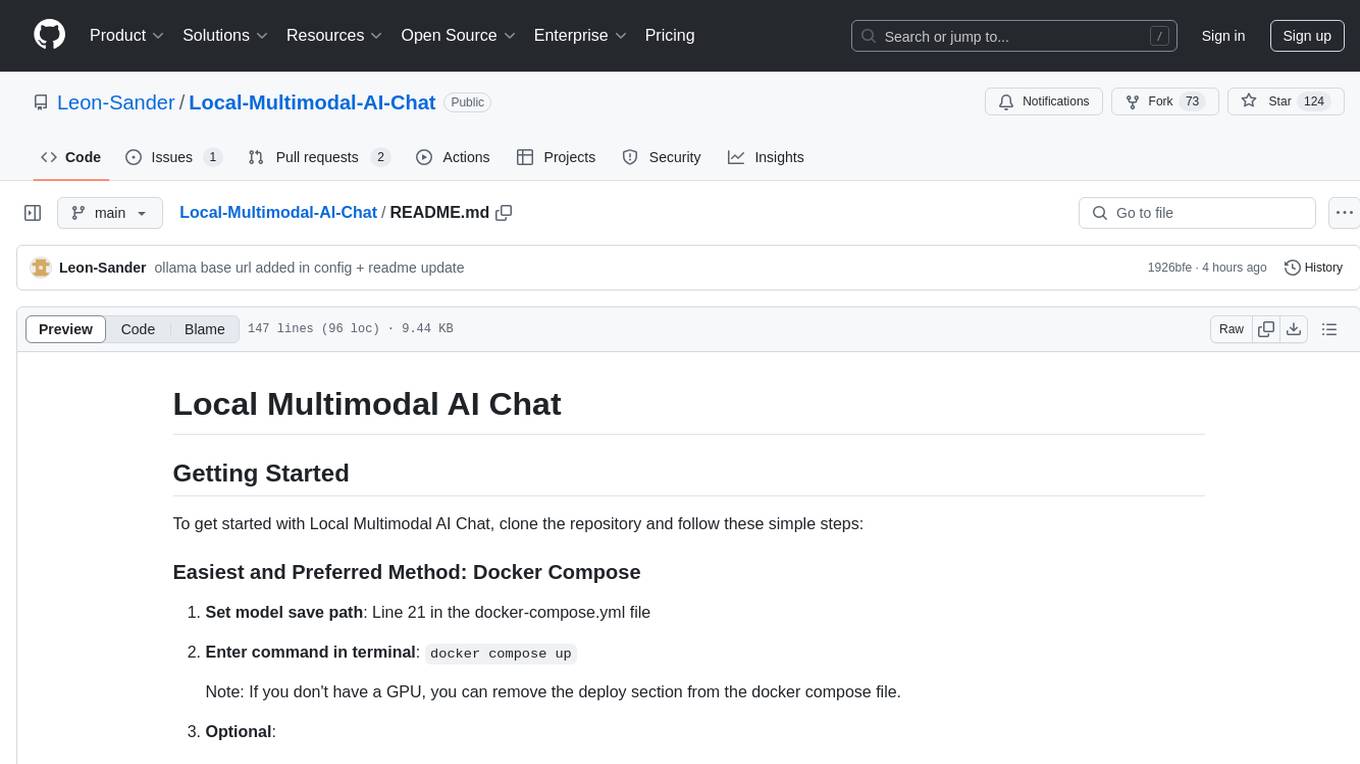
Local-Multimodal-AI-Chat
Local Multimodal AI Chat is a multimodal chat application that integrates various AI models to manage audio, images, and PDFs seamlessly within a single interface. It offers local model processing with Ollama for data privacy, integration with OpenAI API for broader AI capabilities, audio chatting with Whisper AI for accurate voice interpretation, and PDF chatting with Chroma DB for efficient PDF interactions. The application is designed for AI enthusiasts and developers seeking a comprehensive solution for multimodal AI technologies.
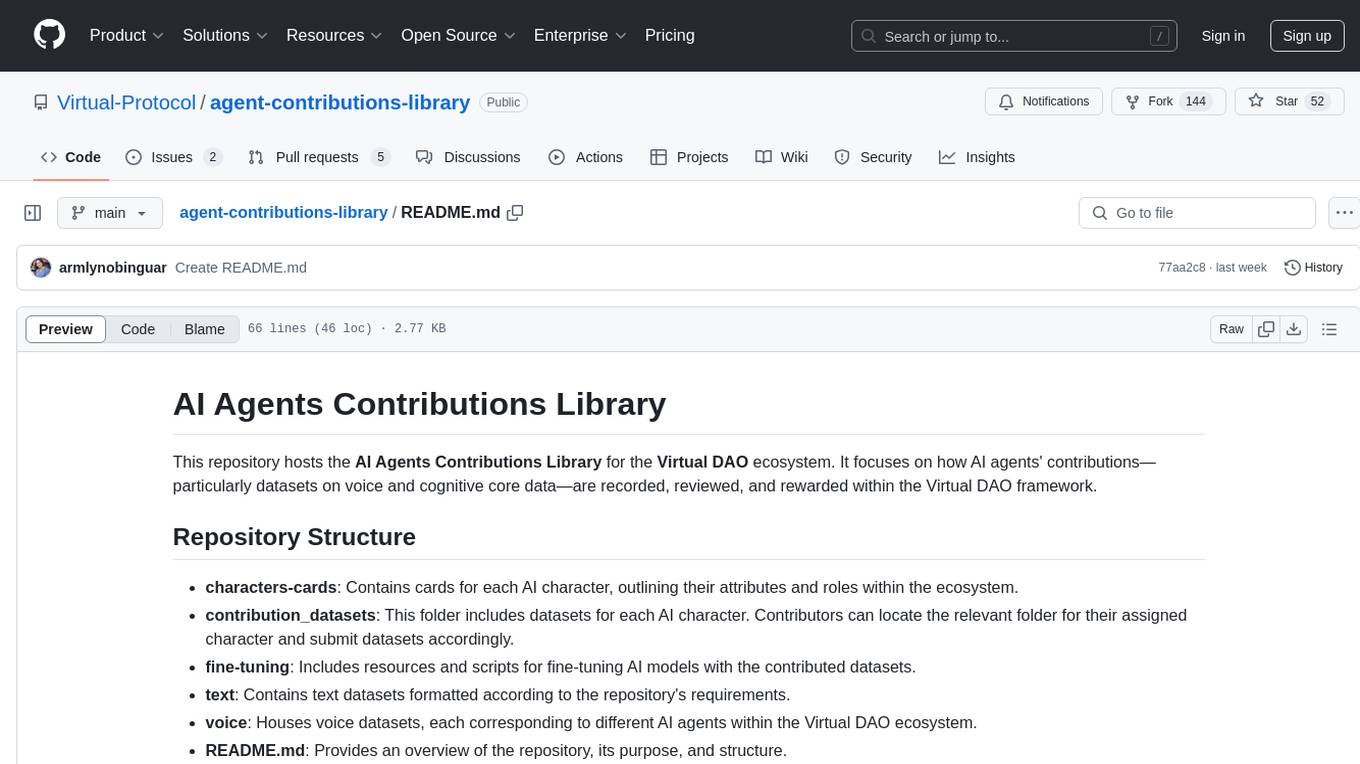
agent-contributions-library
The AI Agents Contributions Library is a repository dedicated to managing datasets on voice and cognitive core data for AI agents within the Virtual DAO ecosystem. It provides a structured framework for recording, reviewing, and rewarding contributions from contributors. The repository includes folders for character cards, contribution datasets, fine-tuning resources, text datasets, and voice datasets. Contributors can submit datasets following specific guidelines and formats, and the Virtual DAO team reviews and integrates approved datasets to enhance AI agents' capabilities.
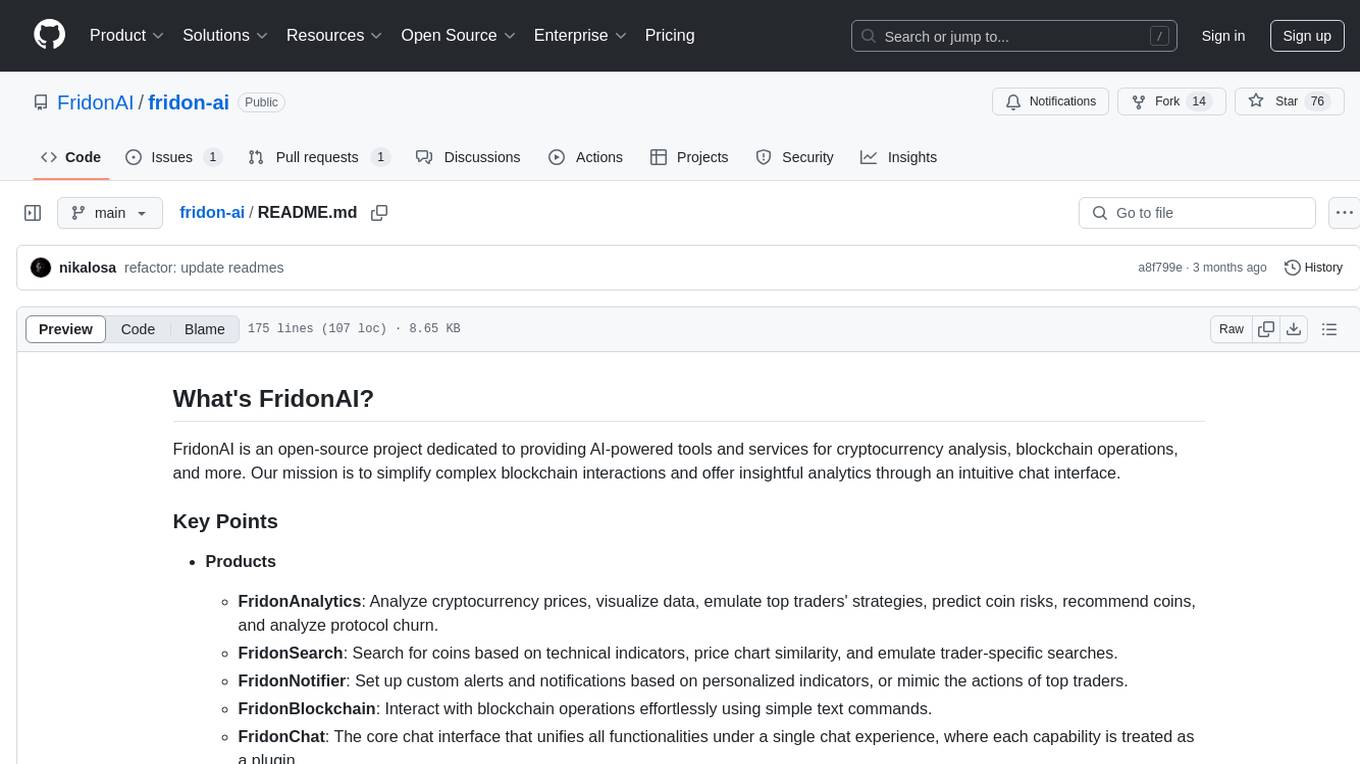
fridon-ai
FridonAI is an open-source project offering AI-powered tools for cryptocurrency analysis and blockchain operations. It includes modules like FridonAnalytics for price analysis, FridonSearch for technical indicators, FridonNotifier for custom alerts, FridonBlockchain for blockchain operations, and FridonChat as a unified chat interface. The platform empowers users to create custom AI chatbots, access crypto tools, and interact effortlessly through chat. The core functionality is modular, with plugins, tools, and utilities for easy extension and development. FridonAI implements a scoring system to assess user interactions and incentivize engagement. The application uses Redis extensively for communication and includes a Nest.js backend for system operations.
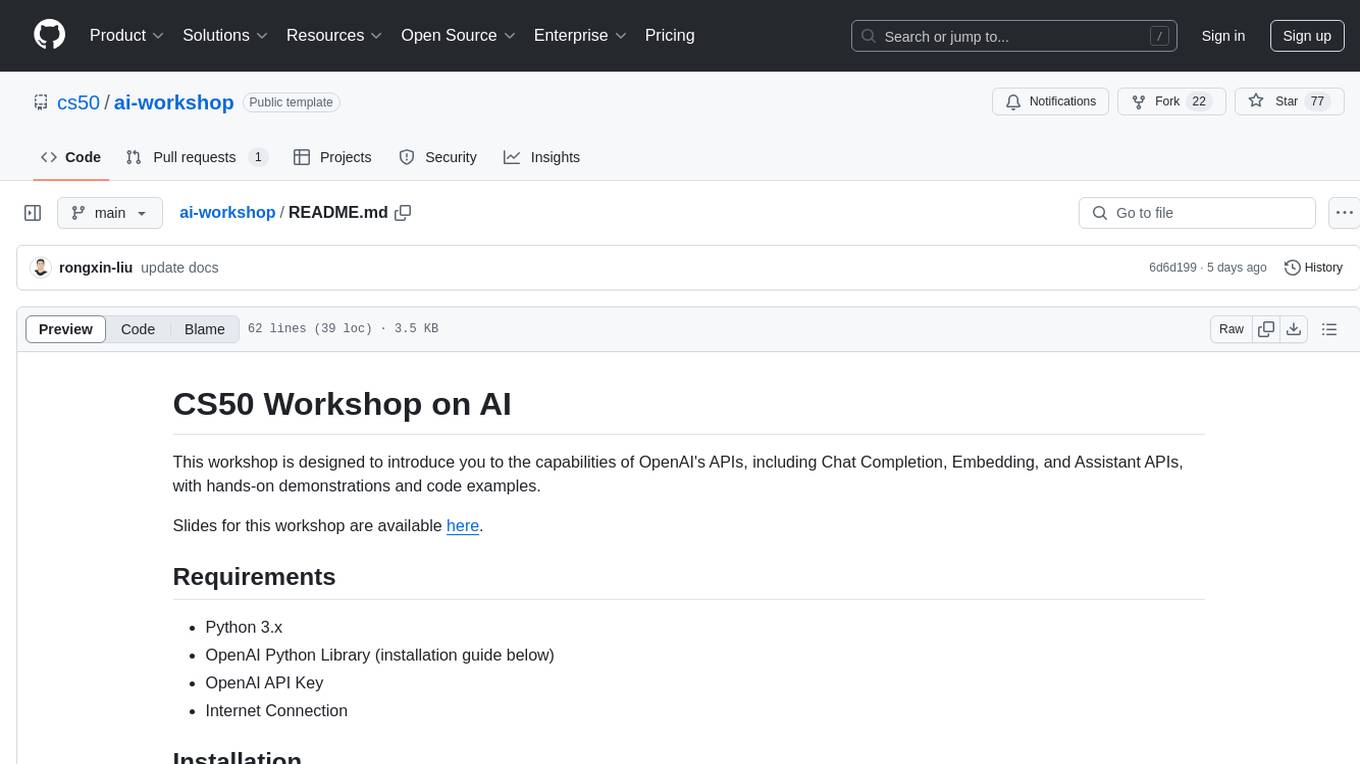
ai-workshop
The AI Workshop repository provides a comprehensive guide to utilizing OpenAI's APIs, including Chat Completion, Embedding, and Assistant APIs. It offers hands-on demonstrations and code examples to help users understand the capabilities of these APIs. The workshop covers topics such as creating interactive chatbots, performing semantic search using text embeddings, and building custom assistants with specific data and context. Users can enhance their understanding of AI applications in education, research, and other domains through practical examples and usage notes.
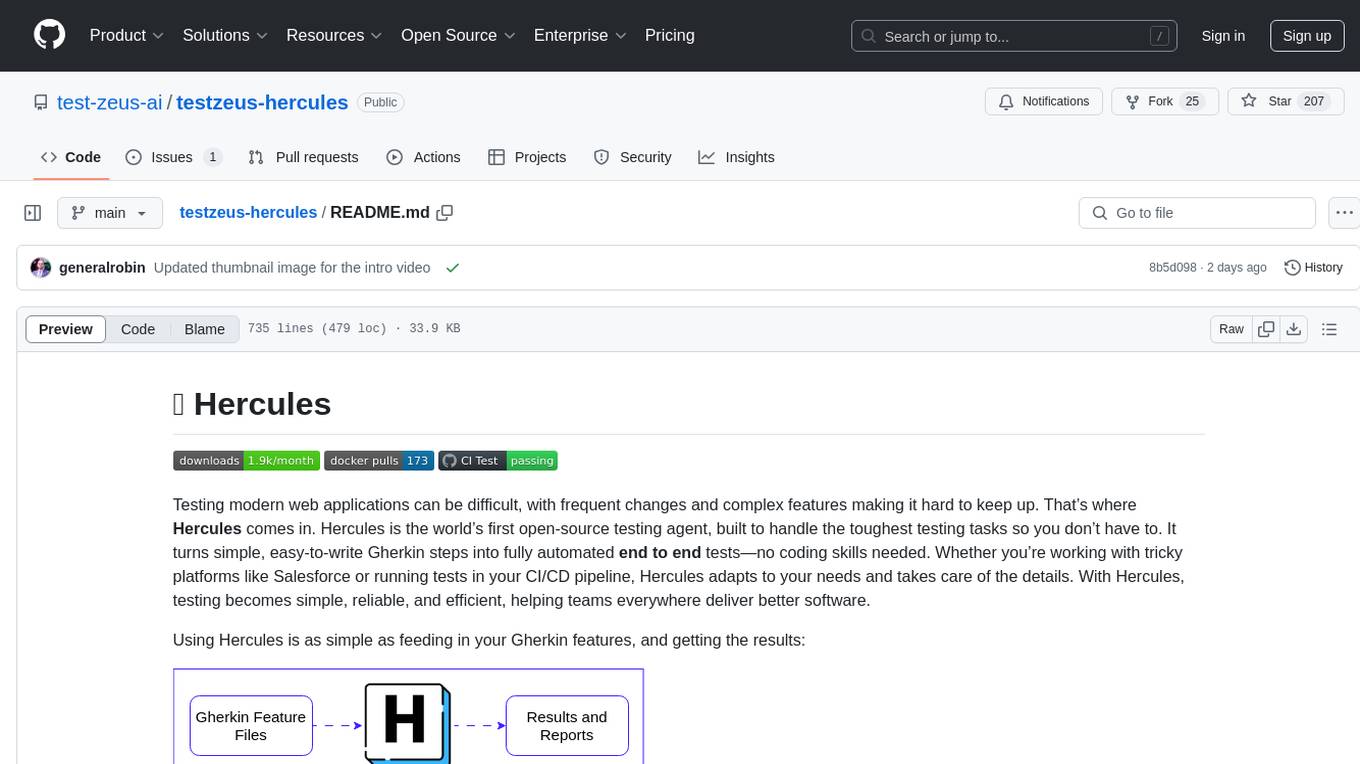
testzeus-hercules
Hercules is the world’s first open-source testing agent designed to handle the toughest testing tasks for modern web applications. It turns simple Gherkin steps into fully automated end-to-end tests, making testing simple, reliable, and efficient. Hercules adapts to various platforms like Salesforce and is suitable for CI/CD pipelines. It aims to democratize and disrupt test automation, making top-tier testing accessible to everyone. The tool is transparent, reliable, and community-driven, empowering teams to deliver better software. Hercules offers multiple ways to get started, including using PyPI package, Docker, or building and running from source code. It supports various AI models, provides detailed installation and usage instructions, and integrates with Nuclei for security testing and WCAG for accessibility testing. The tool is production-ready, open core, and open source, with plans for enhanced LLM support, advanced tooling, improved DOM distillation, community contributions, extensive documentation, and a bounty program.
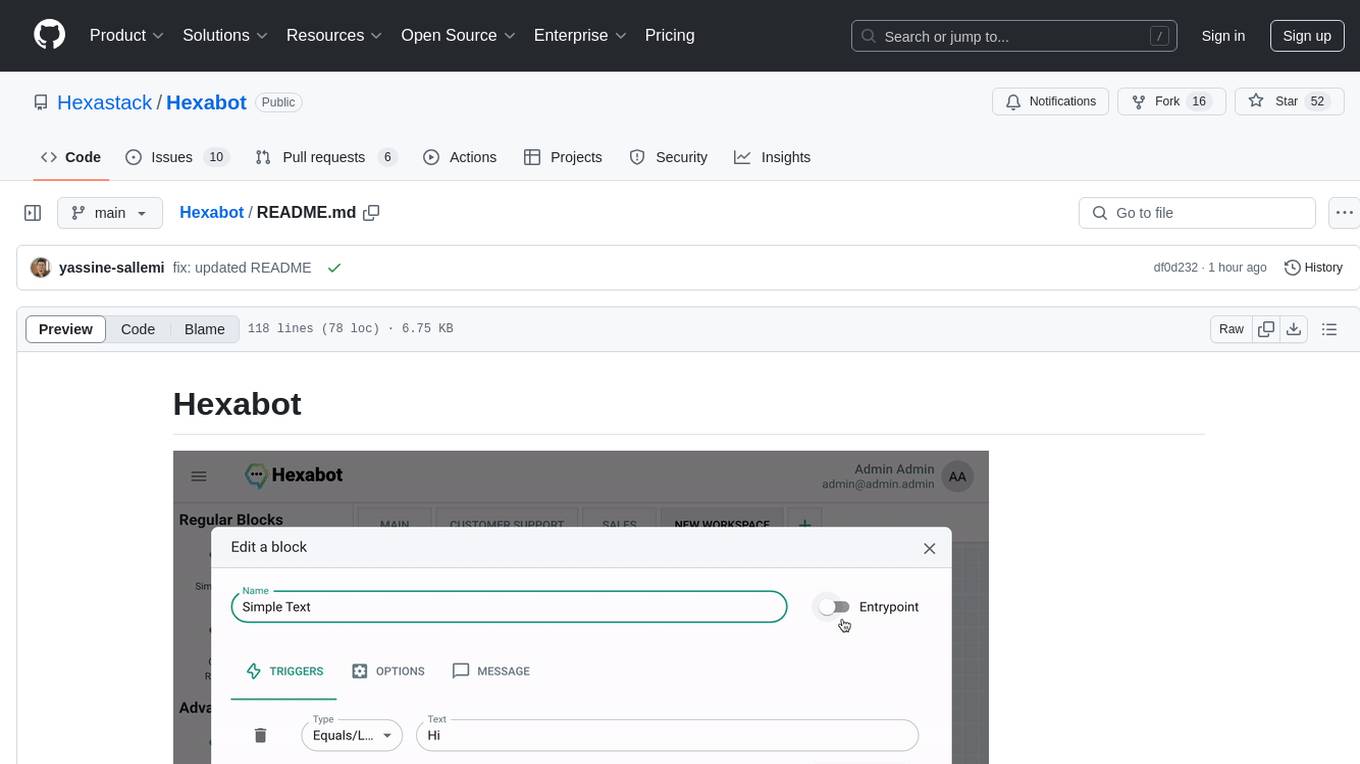
Hexabot
Hexabot Community Edition is an open-source chatbot solution designed for flexibility and customization, offering powerful text-to-action capabilities. It allows users to create and manage AI-powered, multi-channel, and multilingual chatbots with ease. The platform features an analytics dashboard, multi-channel support, visual editor, plugin system, NLP/NLU management, multi-lingual support, CMS integration, user roles & permissions, contextual data, subscribers & labels, and inbox & handover functionalities. The directory structure includes frontend, API, widget, NLU, and docker components. Prerequisites for running Hexabot include Docker and Node.js. The installation process involves cloning the repository, setting up the environment, and running the application. Users can access the UI admin panel and live chat widget for interaction. Various commands are available for managing the Docker services. Detailed documentation and contribution guidelines are provided for users interested in contributing to the project.
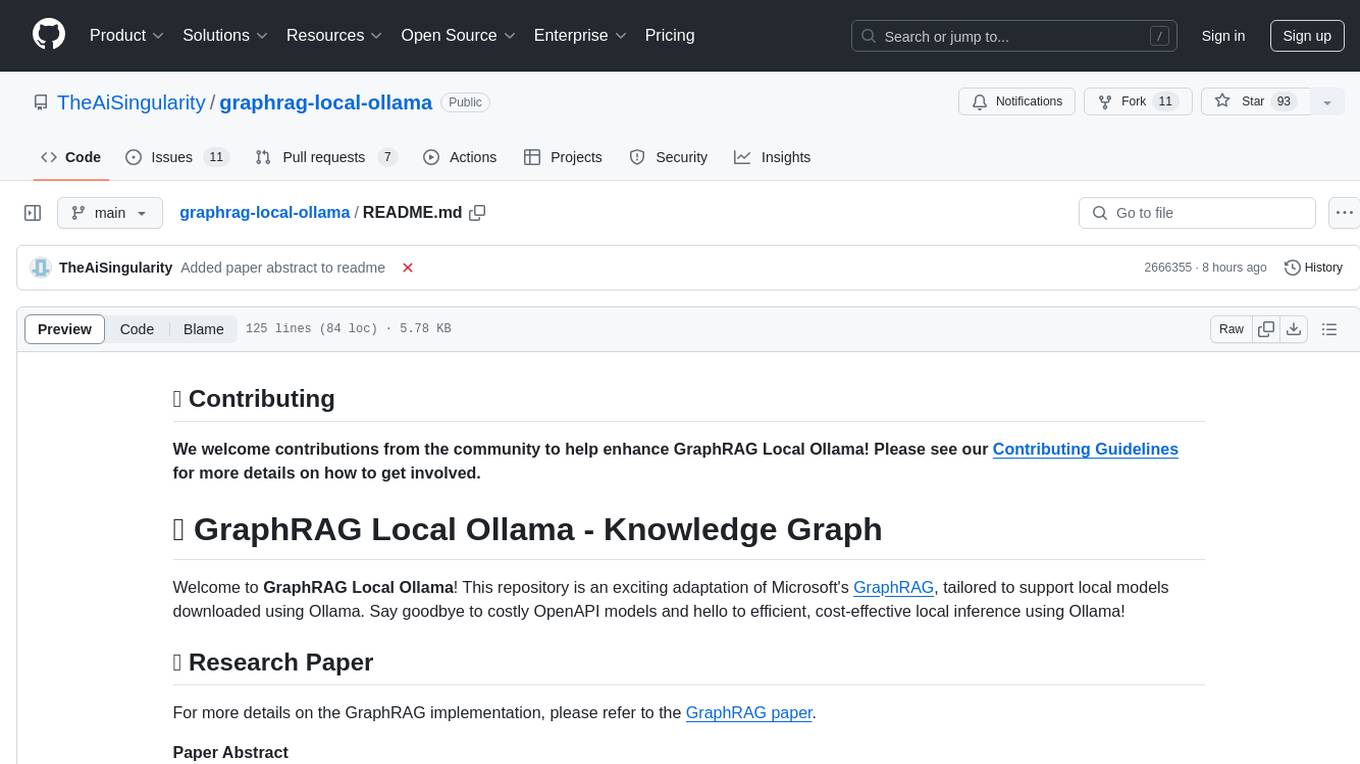
graphrag-local-ollama
GraphRAG Local Ollama is a repository that offers an adaptation of Microsoft's GraphRAG, customized to support local models downloaded using Ollama. It enables users to leverage local models with Ollama for large language models (LLMs) and embeddings, eliminating the need for costly OpenAPI models. The repository provides a simple setup process and allows users to perform question answering over private text corpora by building a graph-based text index and generating community summaries for closely-related entities. GraphRAG Local Ollama aims to improve the comprehensiveness and diversity of generated answers for global sensemaking questions over datasets.
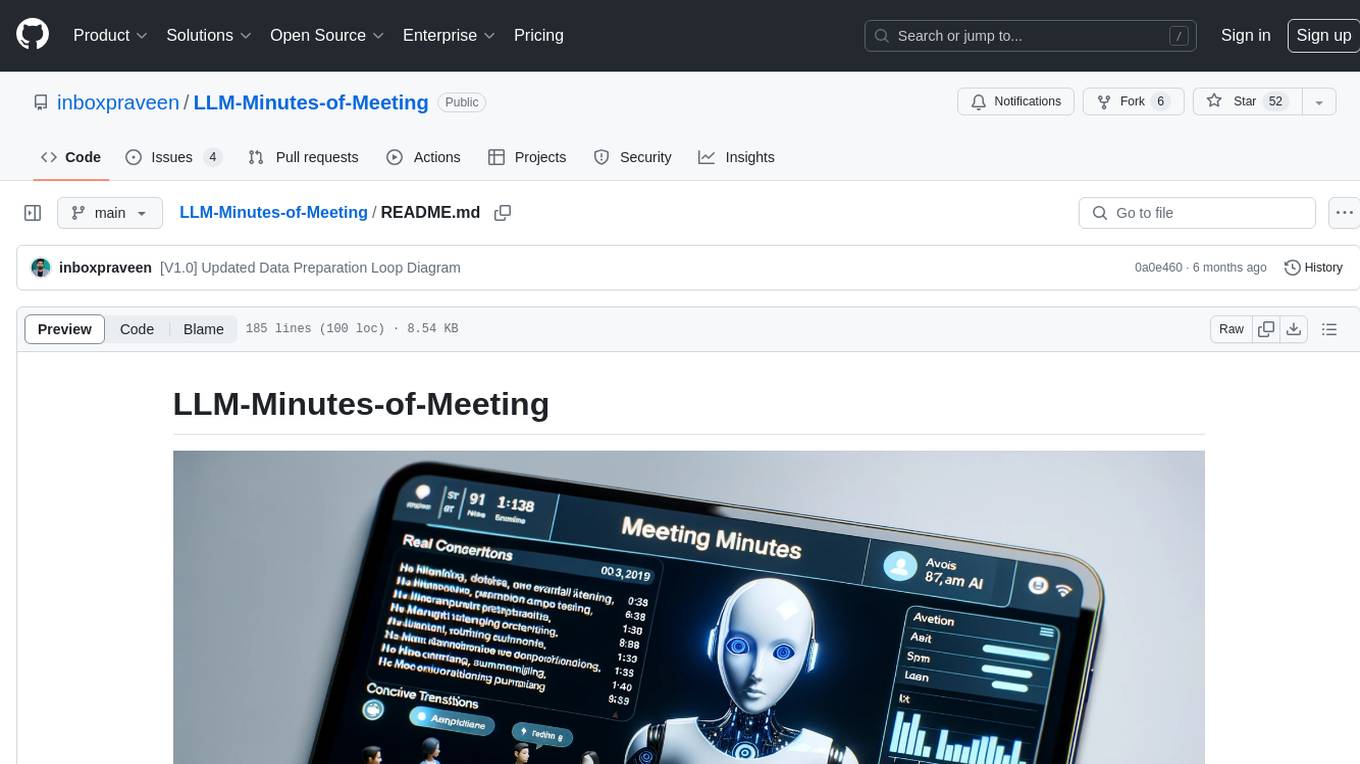
LLM-Minutes-of-Meeting
LLM-Minutes-of-Meeting is a project showcasing NLP & LLM's capability to summarize long meetings and automate the task of delegating Minutes of Meeting(MoM) emails. It converts audio/video files to text, generates editable MoM, and aims to develop a real-time python web-application for meeting automation. The tool features keyword highlighting, topic tagging, export in various formats, user-friendly interface, and uses Celery for asynchronous processing. It is designed for corporate meetings, educational institutions, legal and medical fields, accessibility, and event coverage.
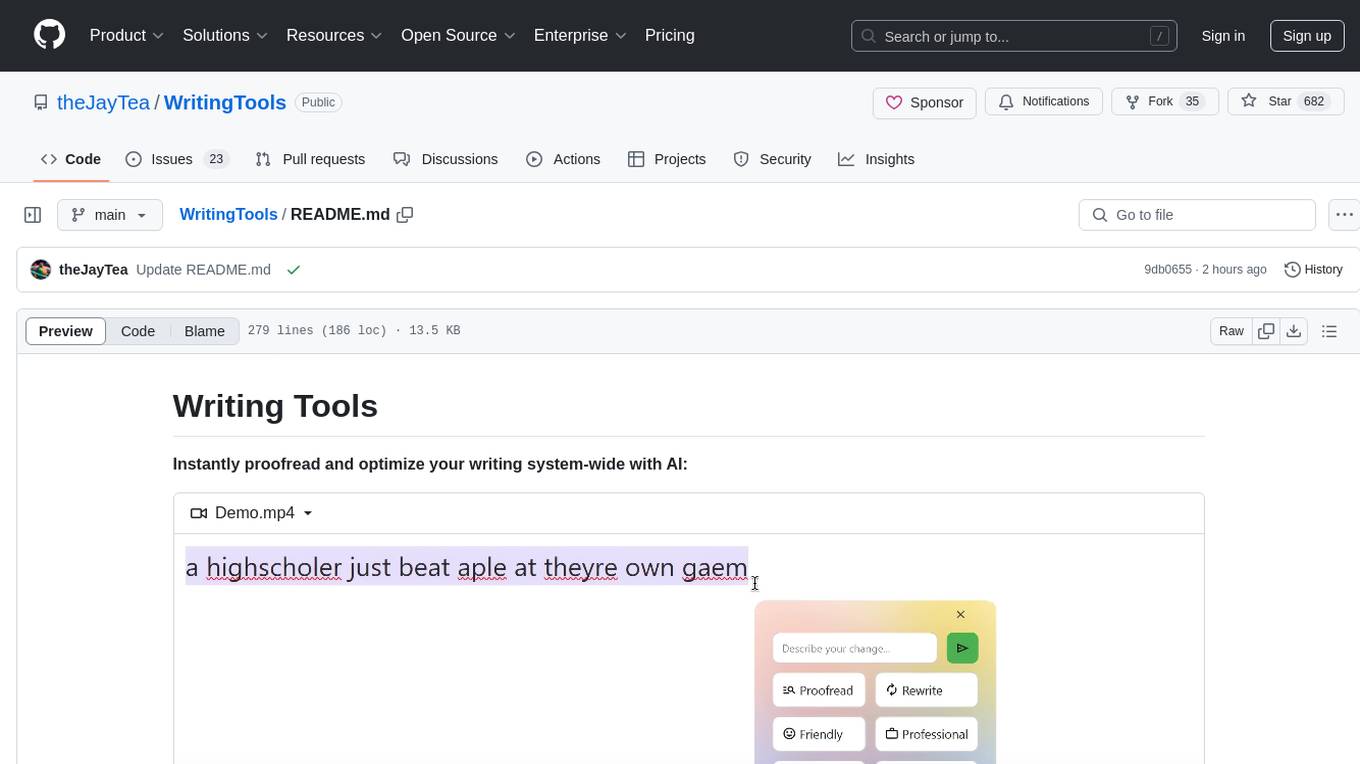
WritingTools
Writing Tools is an Apple Intelligence-inspired application for Windows, Linux, and macOS that supercharges your writing with an AI LLM. It allows users to instantly proofread, optimize text, and summarize content from webpages, YouTube videos, documents, etc. The tool is privacy-focused, open-source, and supports multiple languages. It offers powerful features like grammar correction, content summarization, and LLM chat mode, making it a versatile writing assistant for various tasks.
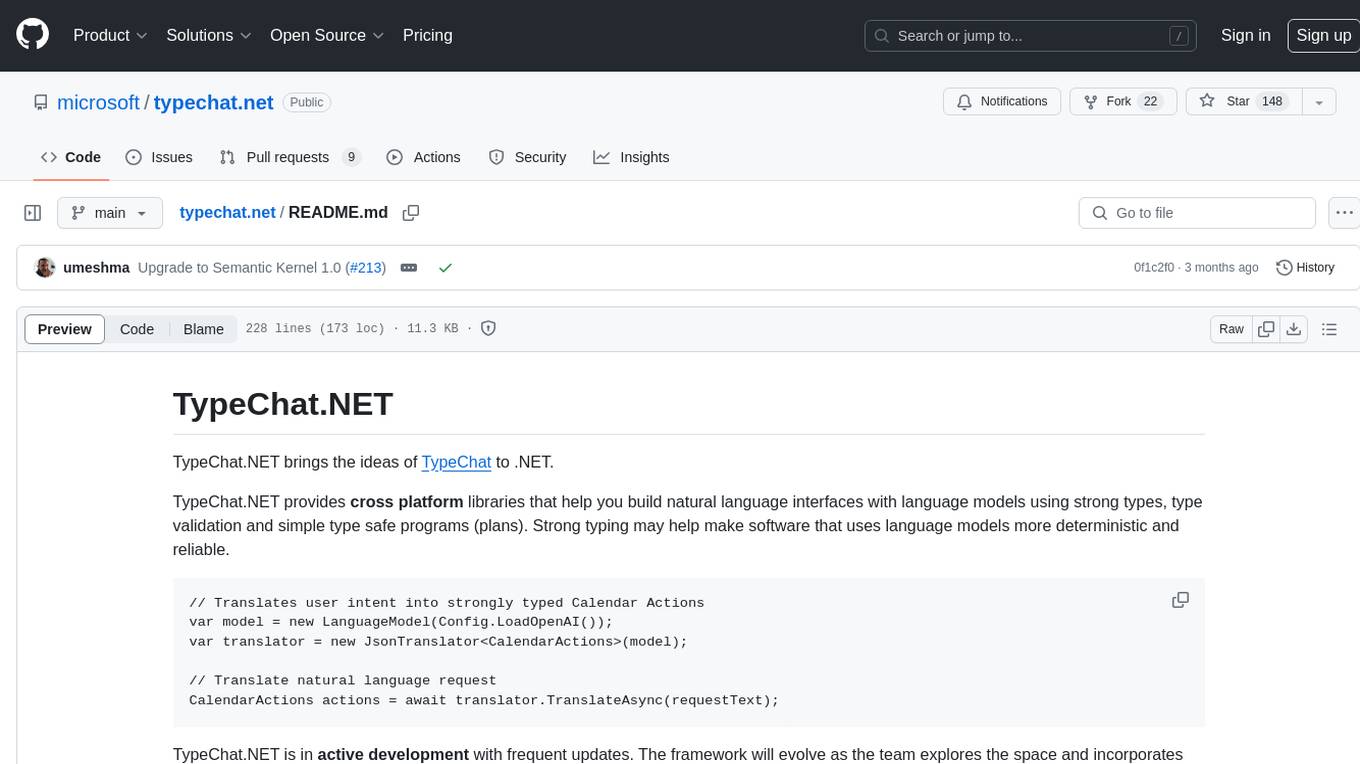
typechat.net
TypeChat.NET is a framework that provides cross-platform libraries for building natural language interfaces with language models using strong types, type validation, and simple type-safe programs. It translates user intent into strongly typed objects and JSON programs, with support for schema export, extensibility, and common scenarios. The framework is actively developed with frequent updates, evolving based on exploration and feedback. It consists of assemblies for translating user intent, synthesizing JSON programs, and integrating with Microsoft Semantic Kernel. TypeChat.NET requires familiarity with and access to OpenAI language models for its examples and scenarios.
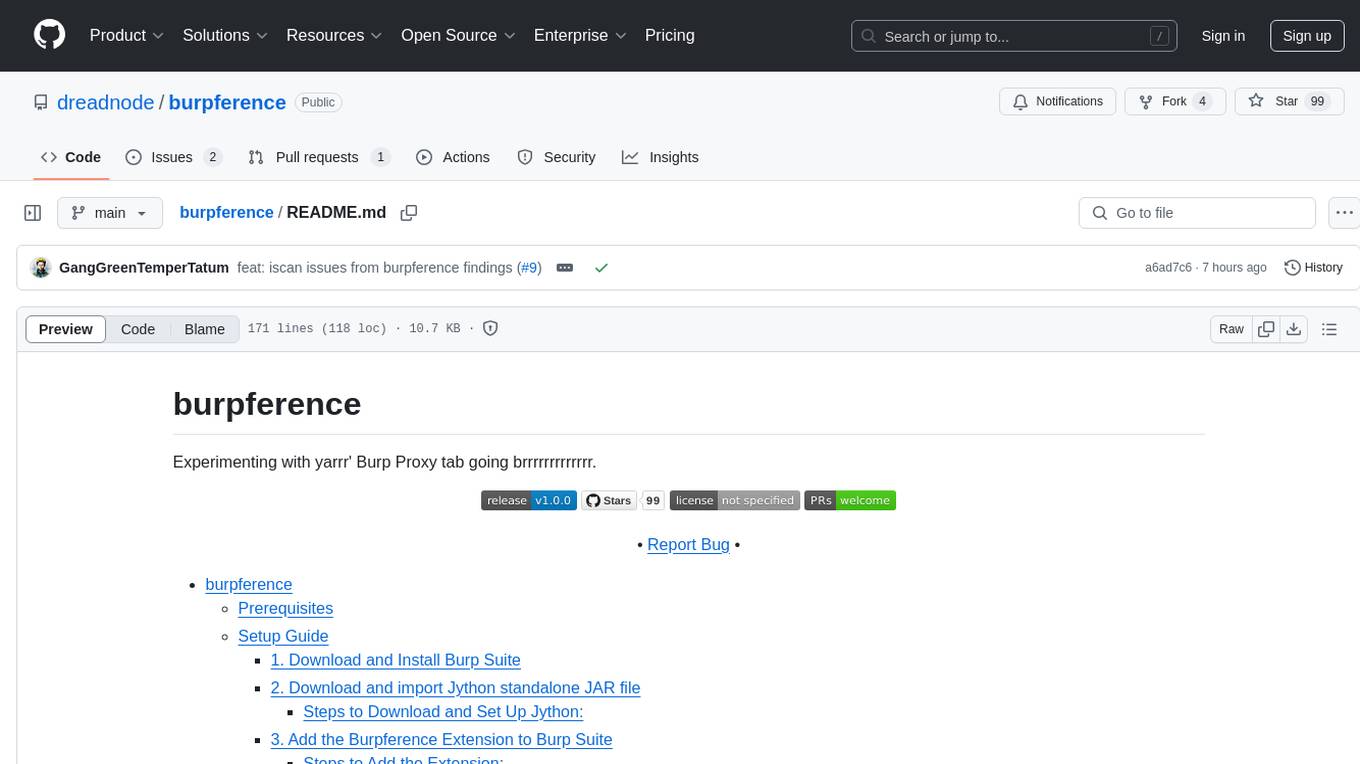
burpference
Burpference is an open-source extension designed to capture in-scope HTTP requests and responses from Burp's proxy history and send them to a remote LLM API in JSON format. It automates response capture, integrates with APIs, optimizes resource usage, provides color-coded findings visualization, offers comprehensive logging, supports native Burp reporting, and allows flexible configuration. Users can customize system prompts, API keys, and remote hosts, and host models locally to prevent high inference costs. The tool is ideal for offensive web application engagements to surface findings and vulnerabilities.
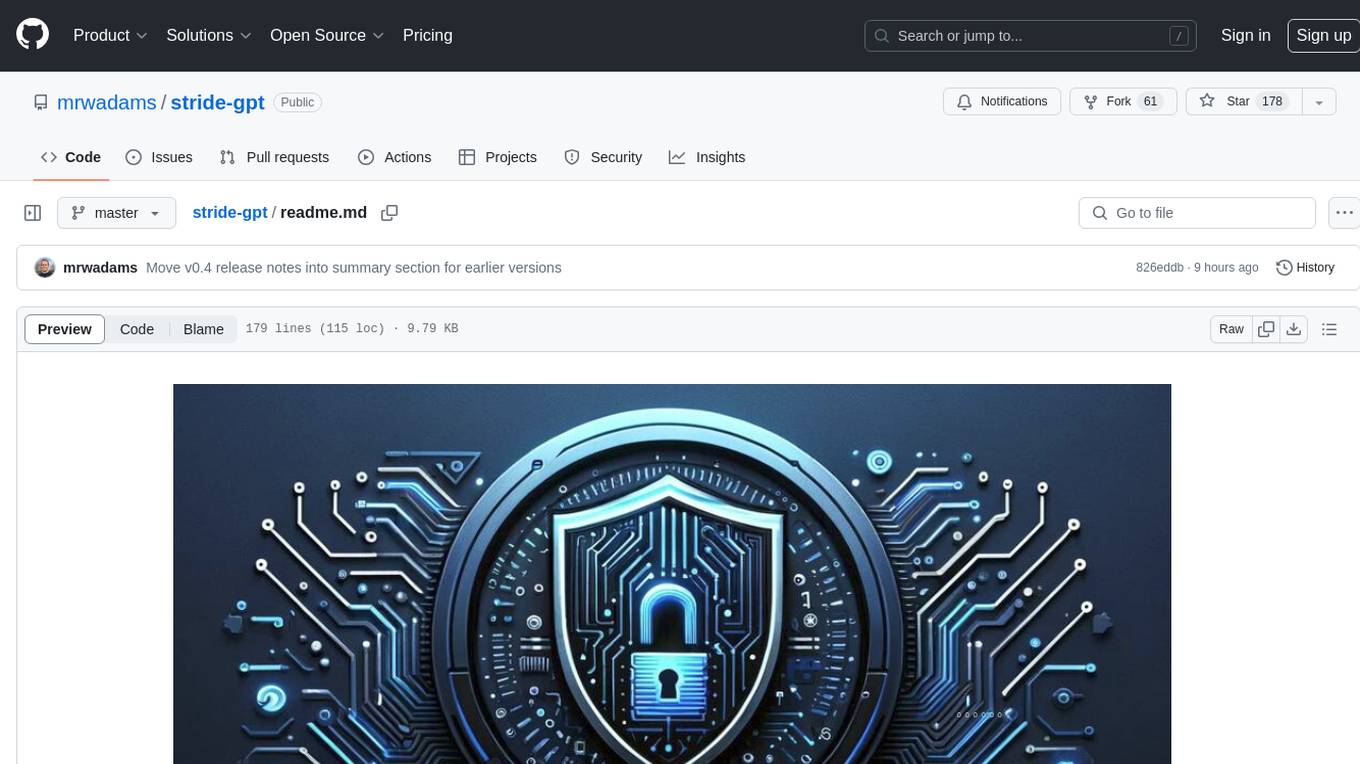
stride-gpt
STRIDE GPT is an AI-powered threat modelling tool that leverages Large Language Models (LLMs) to generate threat models and attack trees for a given application based on the STRIDE methodology. Users provide application details, such as the application type, authentication methods, and whether the application is internet-facing or processes sensitive data. The model then generates its output based on the provided information. It features a simple and user-friendly interface, supports multi-modal threat modelling, generates attack trees, suggests possible mitigations for identified threats, and does not store application details. STRIDE GPT can be accessed via OpenAI API, Azure OpenAI Service, Google AI API, or Mistral API. It is available as a Docker container image for easy deployment.
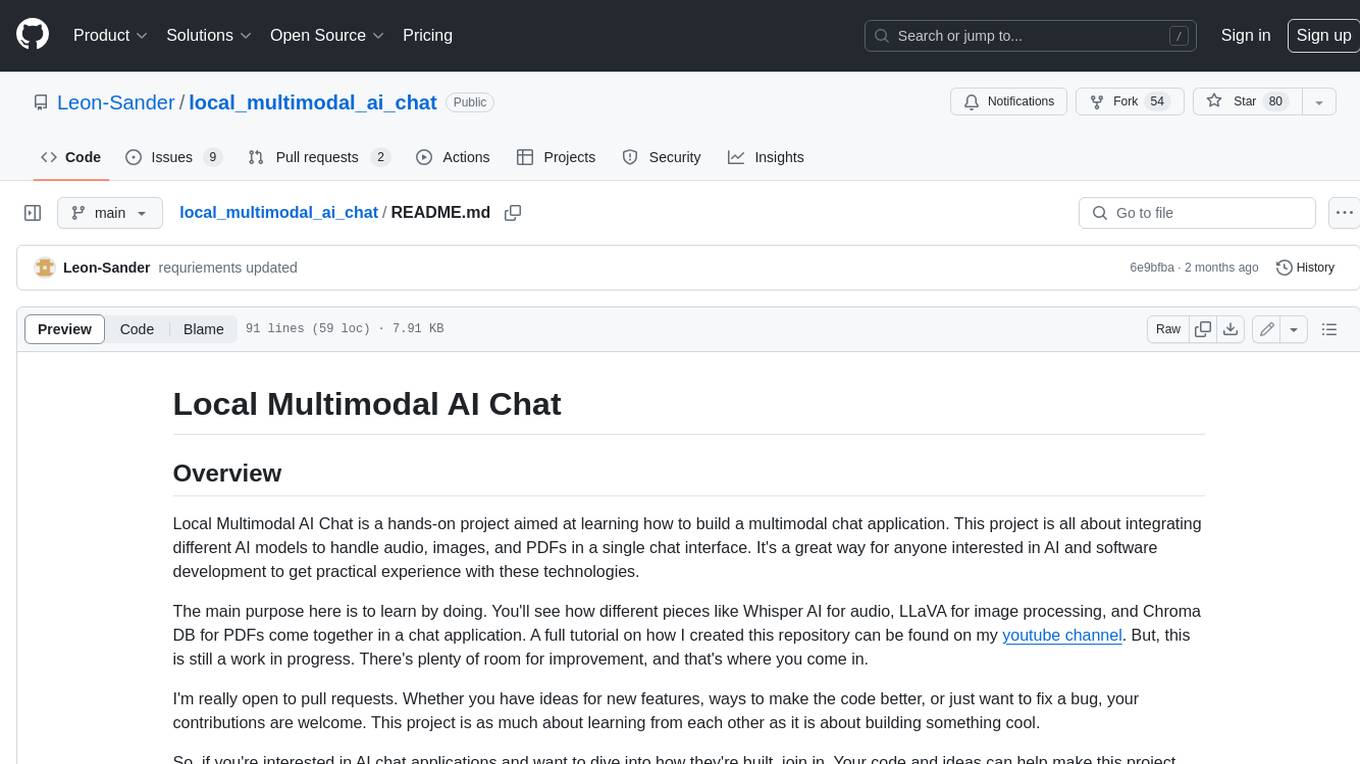
local_multimodal_ai_chat
Local Multimodal AI Chat is a hands-on project that teaches you how to build a multimodal chat application. It integrates different AI models to handle audio, images, and PDFs in a single chat interface. This project is perfect for anyone interested in AI and software development who wants to gain practical experience with these technologies.
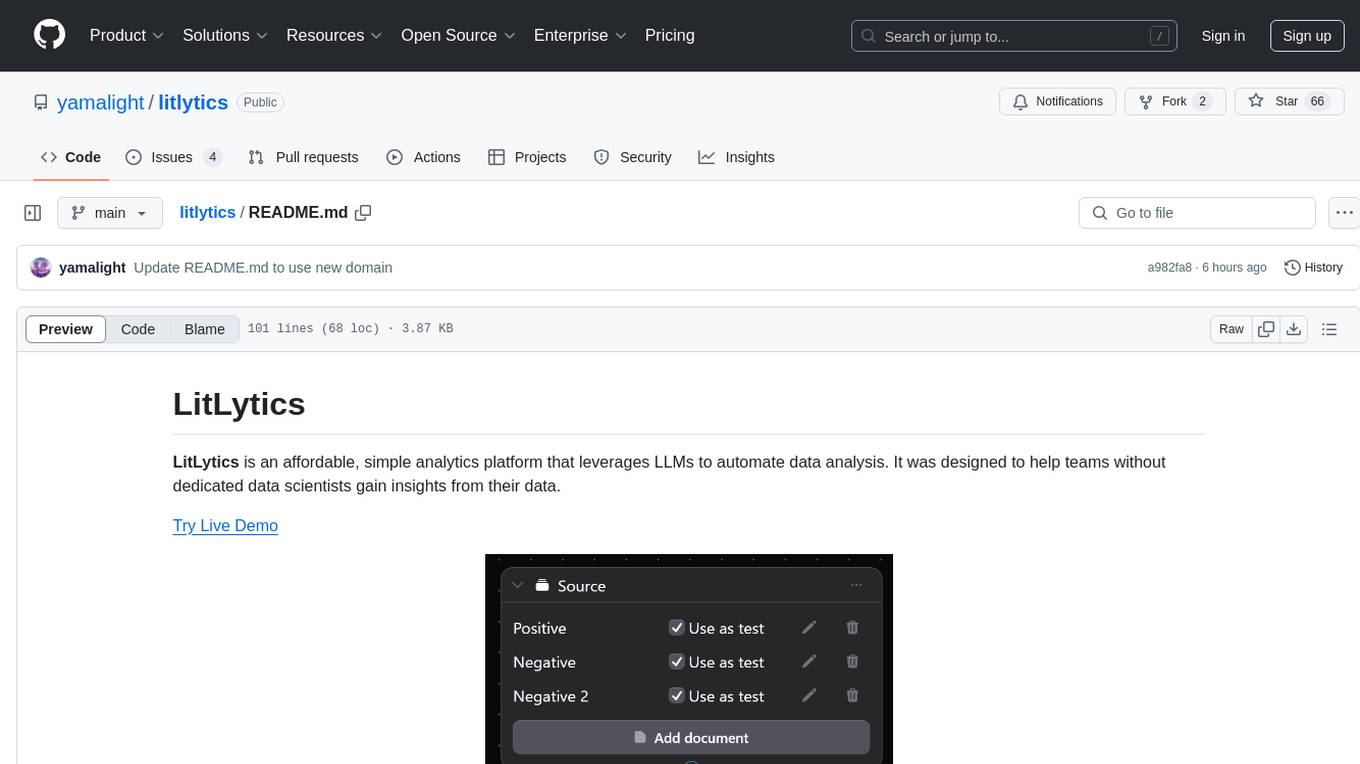
litlytics
LitLytics is an affordable analytics platform leveraging LLMs for automated data analysis. It simplifies analytics for teams without data scientists, generates custom pipelines, and allows customization. Cost-efficient with low data processing costs. Scalable and flexible, works with CSV, PDF, and plain text data formats.
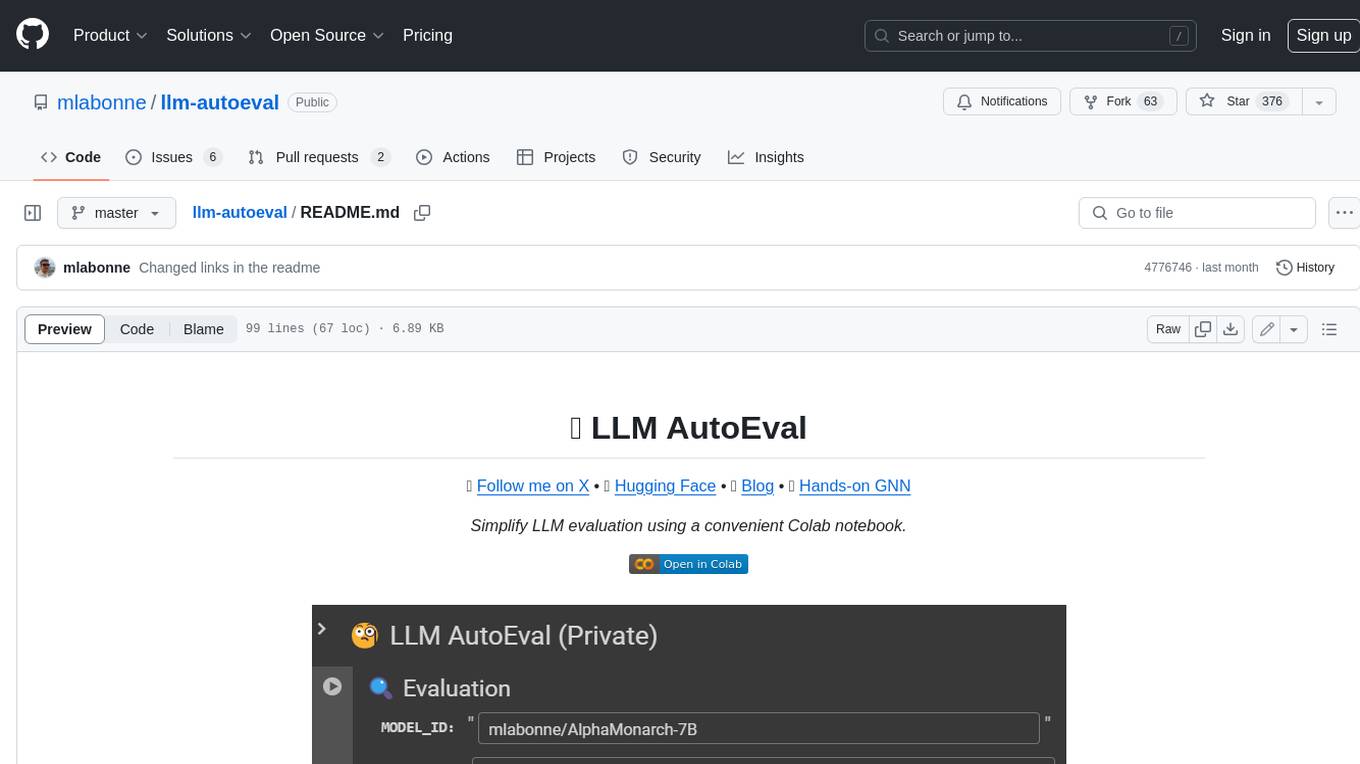
llm-autoeval
LLM AutoEval is a tool that simplifies the process of evaluating Large Language Models (LLMs) using a convenient Colab notebook. It automates the setup and execution of evaluations using RunPod, allowing users to customize evaluation parameters and generate summaries that can be uploaded to GitHub Gist for easy sharing and reference. LLM AutoEval supports various benchmark suites, including Nous, Lighteval, and Open LLM, enabling users to compare their results with existing models and leaderboards.
For similar tasks

AiTimeline
AiTimeline is a comprehensive timeline showcasing the evolution and advancements in artificial intelligence technologies from 2022 to 2024. It provides a detailed overview of key milestones, releases, and developments in the AI industry, organized chronologically by year. The timeline offers a responsive design for seamless viewing on various devices and includes brief descriptions for each event, making it a valuable resource for researchers, enthusiasts, and anyone interested in tracking the progress of AI technologies.
For similar jobs

NanoLLM
NanoLLM is a tool designed for optimized local inference for Large Language Models (LLMs) using HuggingFace-like APIs. It supports quantization, vision/language models, multimodal agents, speech, vector DB, and RAG. The tool aims to provide efficient and effective processing for LLMs on local devices, enhancing performance and usability for various AI applications.
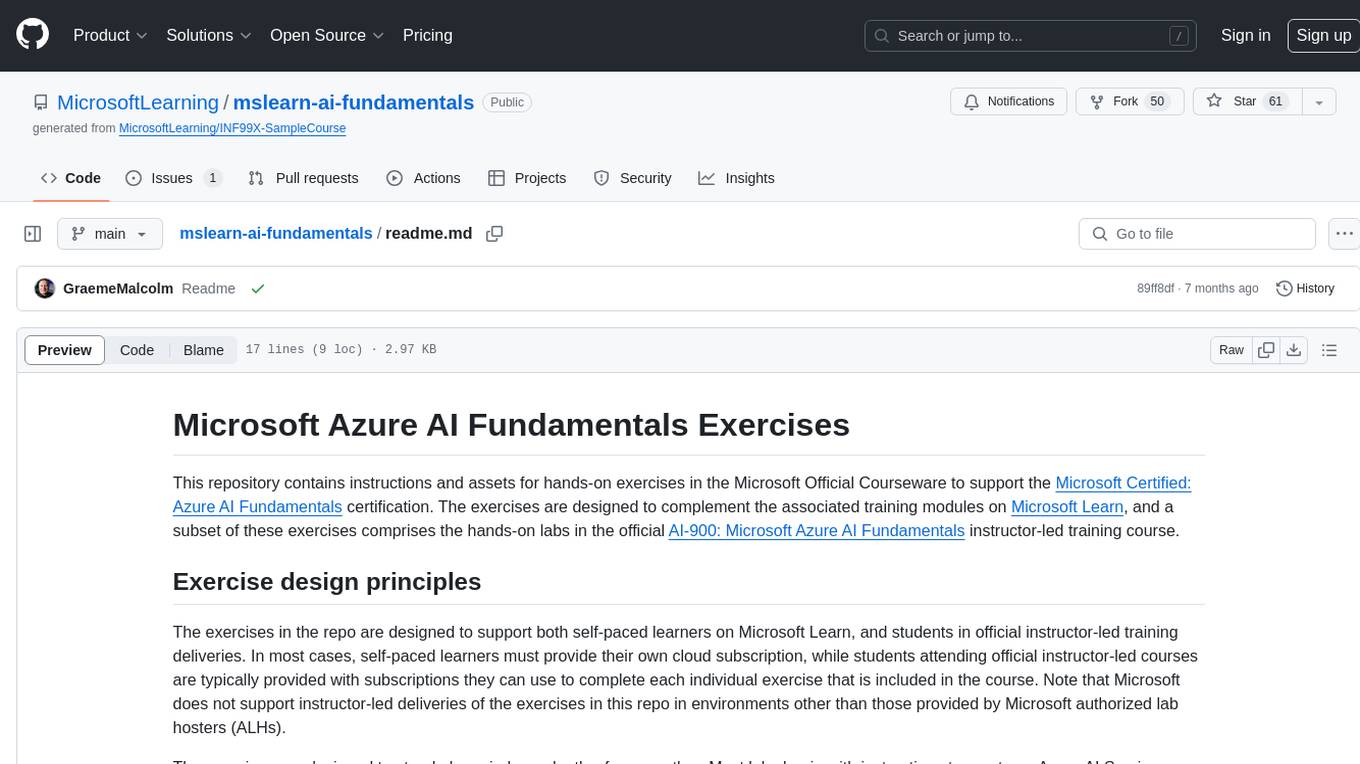
mslearn-ai-fundamentals
This repository contains materials for the Microsoft Learn AI Fundamentals module. It covers the basics of artificial intelligence, machine learning, and data science. The content includes hands-on labs, interactive learning modules, and assessments to help learners understand key concepts and techniques in AI. Whether you are new to AI or looking to expand your knowledge, this module provides a comprehensive introduction to the fundamentals of AI.

awesome-ai-tools
Awesome AI Tools is a curated list of popular tools and resources for artificial intelligence enthusiasts. It includes a wide range of tools such as machine learning libraries, deep learning frameworks, data visualization tools, and natural language processing resources. Whether you are a beginner or an experienced AI practitioner, this repository aims to provide you with a comprehensive collection of tools to enhance your AI projects and research. Explore the list to discover new tools, stay updated with the latest advancements in AI technology, and find the right resources to support your AI endeavors.
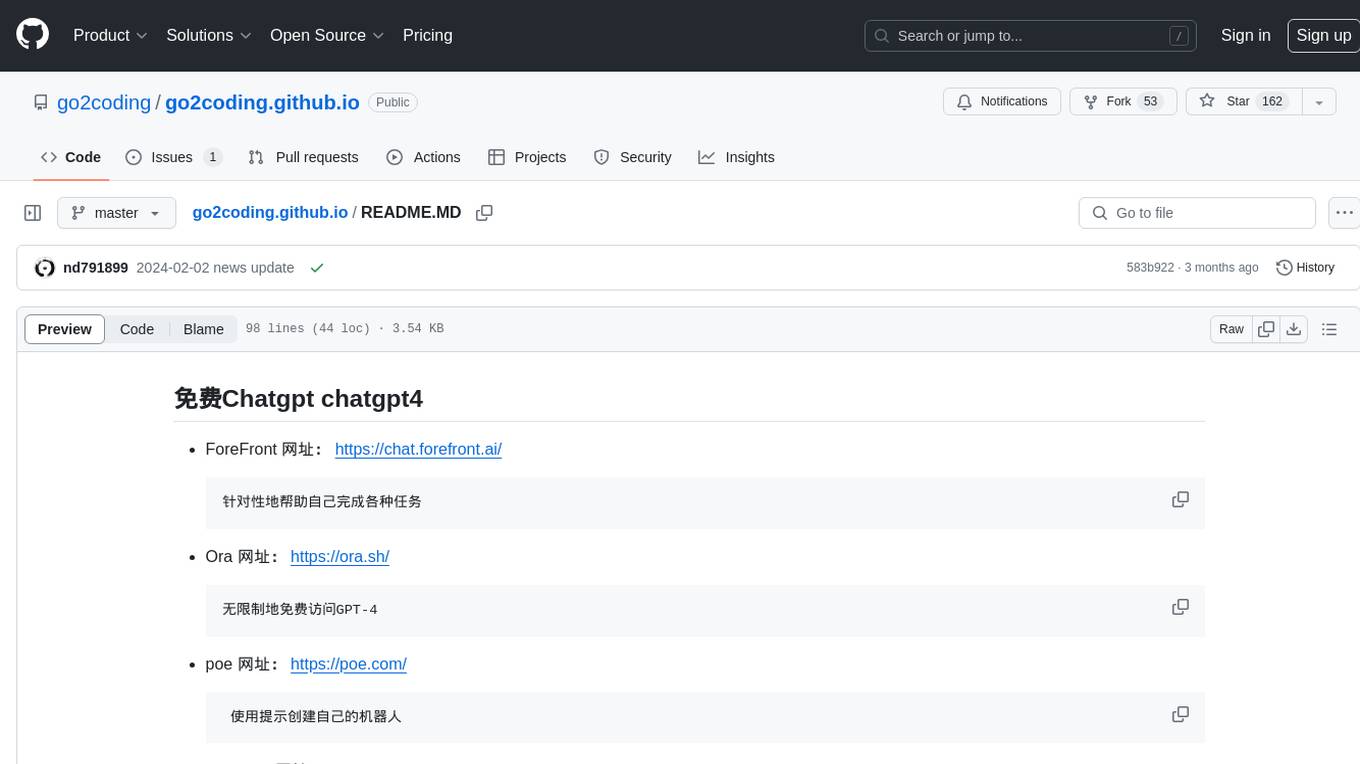
go2coding.github.io
The go2coding.github.io repository is a collection of resources for AI enthusiasts, providing information on AI products, open-source projects, AI learning websites, and AI learning frameworks. It aims to help users stay updated on industry trends, learn from community projects, access learning resources, and understand and choose AI frameworks. The repository also includes instructions for local and external deployment of the project as a static website, with details on domain registration, hosting services, uploading static web pages, configuring domain resolution, and a visual guide to the AI tool navigation website. Additionally, it offers a platform for AI knowledge exchange through a QQ group and promotes AI tools through a WeChat public account.
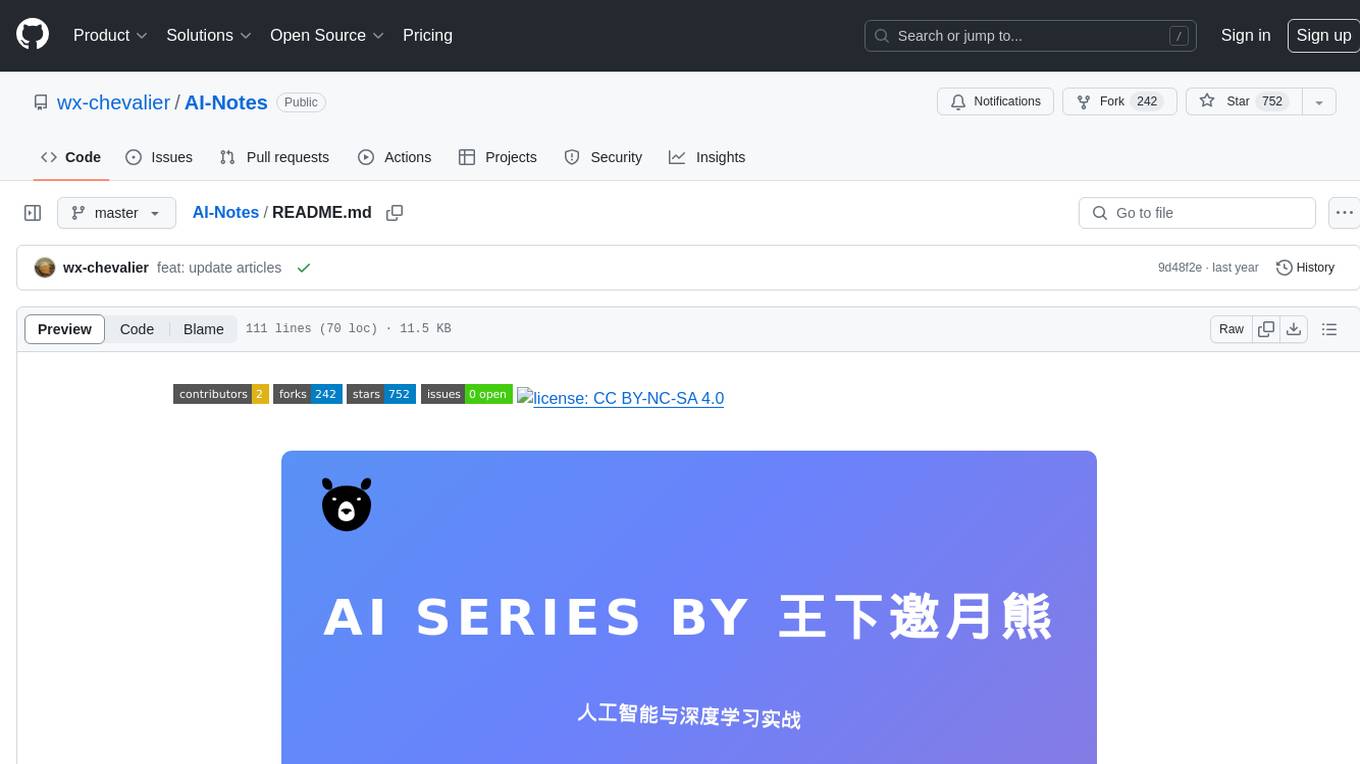
AI-Notes
AI-Notes is a repository dedicated to practical applications of artificial intelligence and deep learning. It covers concepts such as data mining, machine learning, natural language processing, and AI. The repository contains Jupyter Notebook examples for hands-on learning and experimentation. It explores the development stages of AI, from narrow artificial intelligence to general artificial intelligence and superintelligence. The content delves into machine learning algorithms, deep learning techniques, and the impact of AI on various industries like autonomous driving and healthcare. The repository aims to provide a comprehensive understanding of AI technologies and their real-world applications.
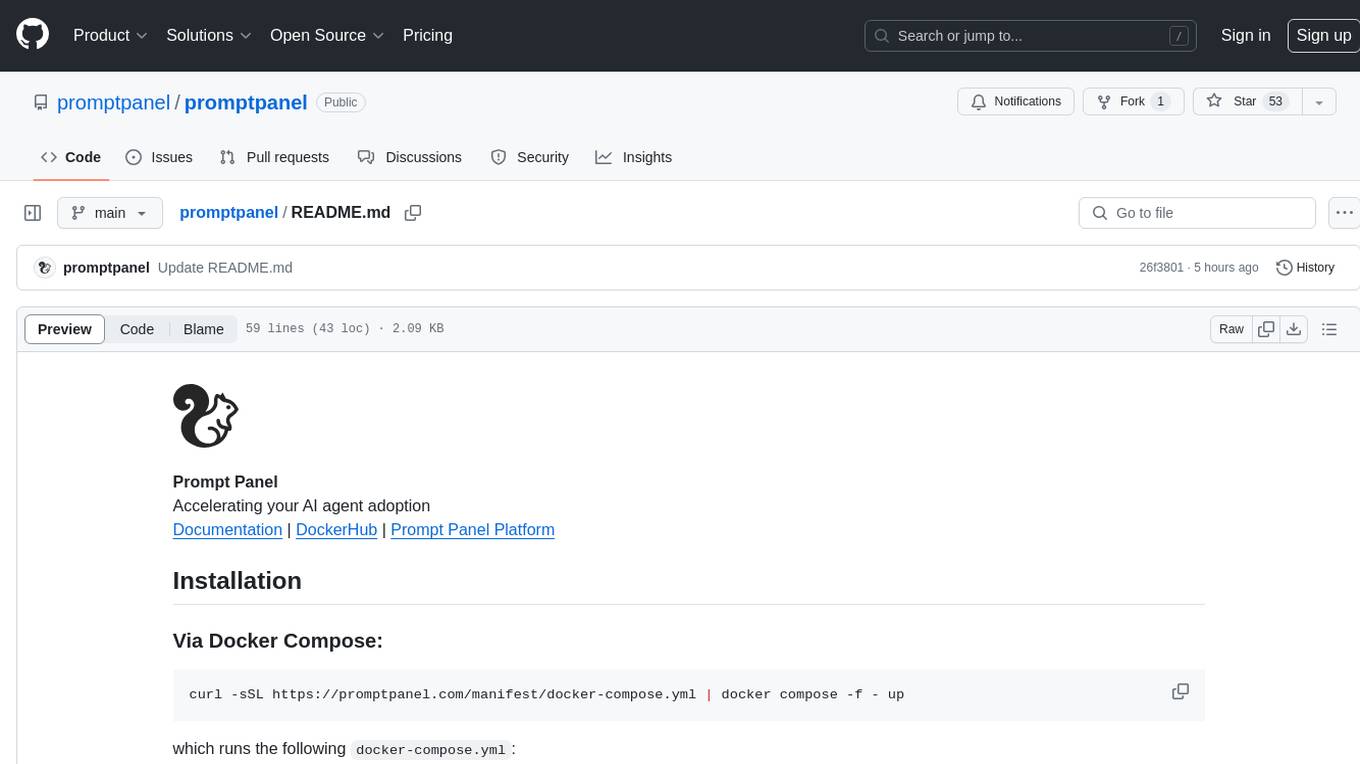
promptpanel
Prompt Panel is a tool designed to accelerate the adoption of AI agents by providing a platform where users can run large language models across any inference provider, create custom agent plugins, and use their own data safely. The tool allows users to break free from walled-gardens and have full control over their models, conversations, and logic. With Prompt Panel, users can pair their data with any language model, online or offline, and customize the system to meet their unique business needs without any restrictions.
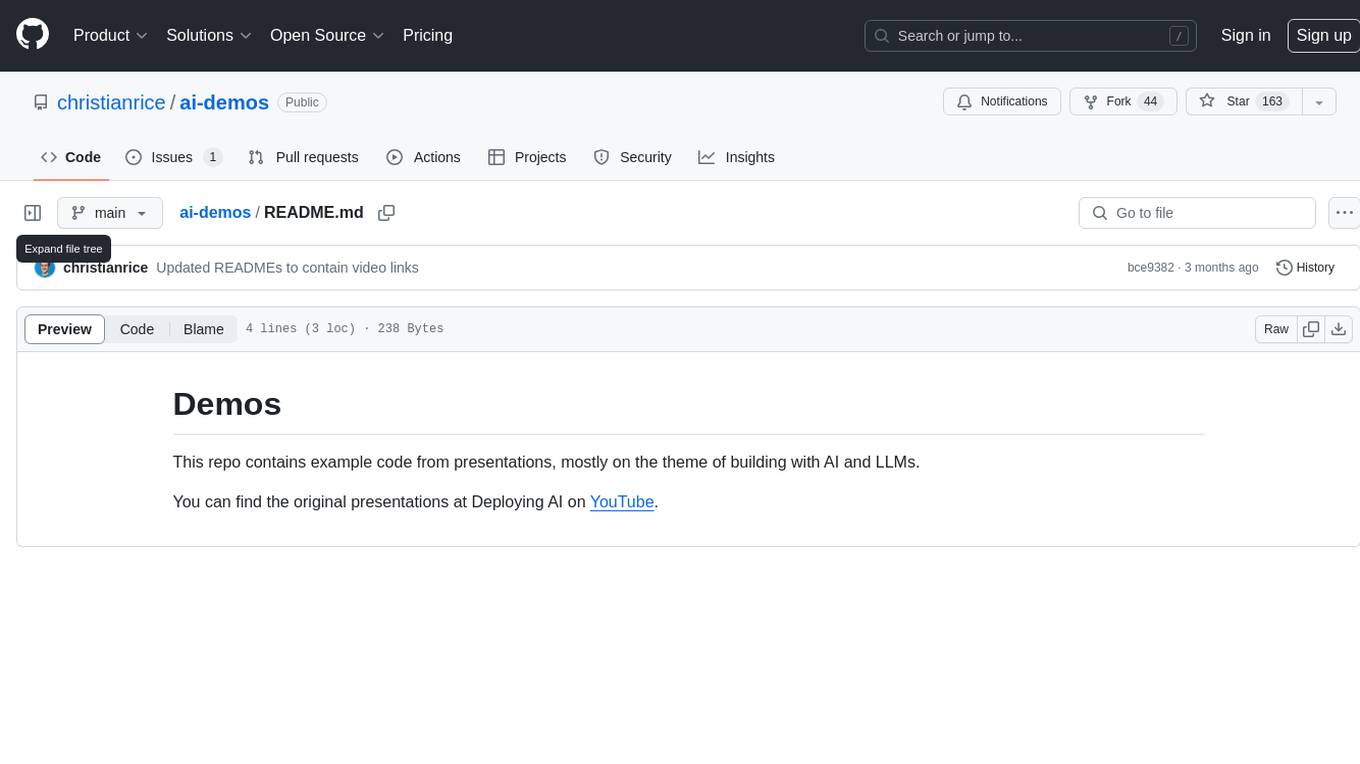
ai-demos
The 'ai-demos' repository is a collection of example code from presentations focusing on building with AI and LLMs. It serves as a resource for developers looking to explore practical applications of artificial intelligence in their projects. The code snippets showcase various techniques and approaches to leverage AI technologies effectively. The repository aims to inspire and educate developers on integrating AI solutions into their applications.
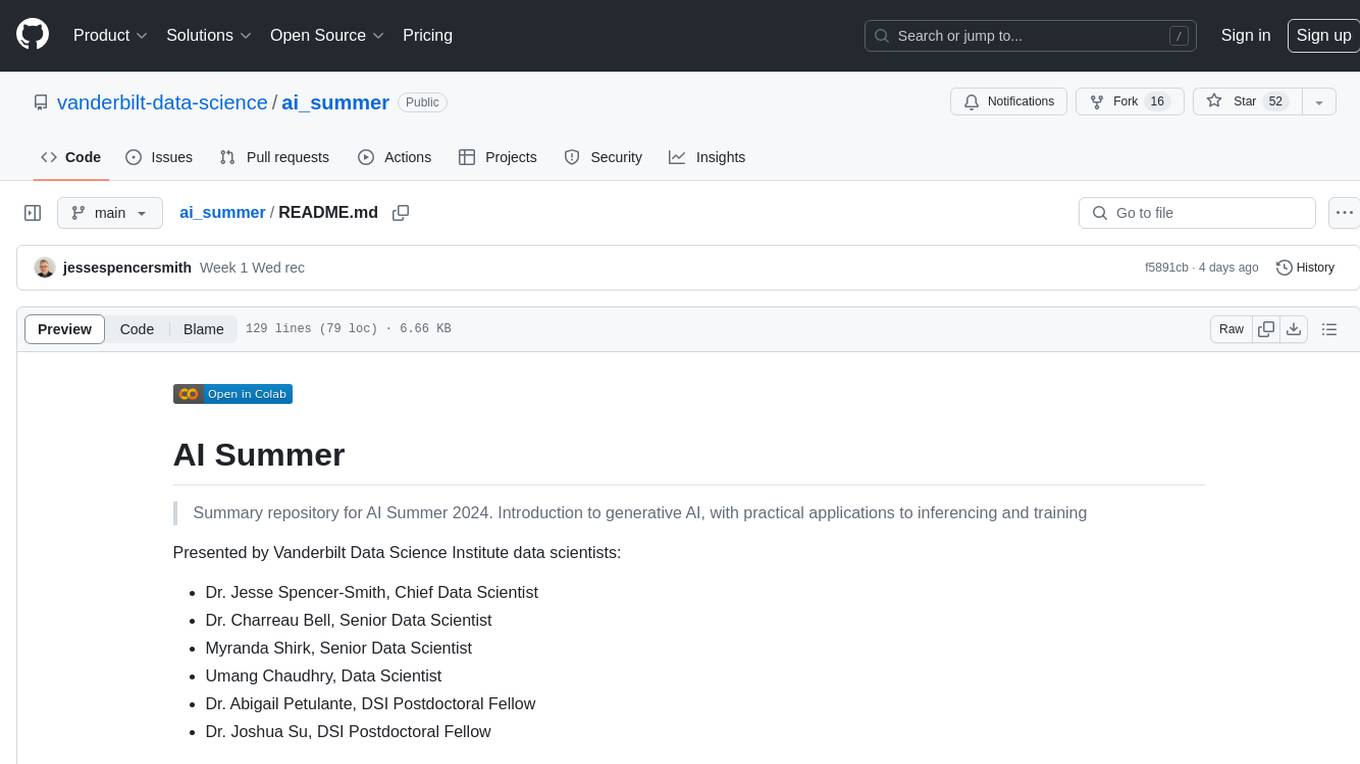
ai_summer
AI Summer is a repository focused on providing workshops and resources for developing foundational skills in generative AI models and transformer models. The repository offers practical applications for inferencing and training, with a specific emphasis on understanding and utilizing advanced AI chat models like BingGPT. Participants are encouraged to engage in interactive programming environments, decide on projects to work on, and actively participate in discussions and breakout rooms. The workshops cover topics such as generative AI models, retrieval-augmented generation, building AI solutions, and fine-tuning models. The goal is to equip individuals with the necessary skills to work with AI technologies effectively and securely, both locally and in the cloud.